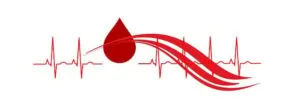In today's dynamic healthcare landscape, extending medical support beyond traditional hours is vital for clinic success. Implementing a robust 24/7 call answering service provides continuous accessibility and responsiveness to patients' needs, boosting satisfaction, building trust, and enhancing the overall healthcare experience. This game-changing approach allows patients to receive immediate assistance at any time while optimizing doctors' office operations through efficient call management, appointment scheduling, and medical information provision. Choosing the right 24-hour medical answering service involves integrating live operators with automated systems for seamless data management, handling routine inquiries during business hours and complex issues after hours. Maintaining patient privacy and security is paramount through secure data transmission, encrypted communication, and strict HIPAA compliance. Measuring success includes efficiency metrics like average handle time and first-call resolution rate, along with proactive staffing adjustments based on call volume trends to ensure high-quality care around the clock.
In today’s fast-paced healthcare landscape, every patient interaction matters. Implementing a round-the-clock medical answering system becomes crucial for clinics and doctors’ offices aiming to excel. This article explores why 24/7 patient call support is essential, delving into its benefits, from improved patient satisfaction to enhanced operational efficiency. Discover how the right 24-hour call handling solution can revolutionize your practice, ensuring no call goes unanswered and every opportunity is seized.
- Understanding the Need for 24/7 Answering Services in Healthcare
- Benefits of Implementing a Round-the-Clock Medical Answering System
- How to Choose the Right 24-Hour Call Handling Solution for Your Practice
- Integrating Live Agents with Automated Systems: A Balanced Approach
- Ensuring Patient Privacy and Security During 24/7 Support
- Measuring Success: Key Performance Indicators for 24-Hour Call Support Services
Understanding the Need for 24/7 Answering Services in Healthcare

In today’s fast-paced healthcare landscape, ensuring continuous patient support and engagement is paramount for clinics and doctors’ offices to thrive. The traditional working hours of 9-to-5 are no longer sufficient to cater to patients’ diverse needs, especially with modern lifestyles and work schedules. This is where the concept of 24/7 medical answering services steps in as a game-changer.
Implementing a robust 24-hour call answering system allows healthcare providers to remain accessible and responsive to their patients’ queries at all times. Whether it’s a quick question about medication, scheduling an appointment for the upcoming weekend, or an urgent after-hours concern, having an always-available call center ensures no patient is left without assistance. This level of accessibility enhances patient satisfaction, fosters trust, and ultimately improves the overall healthcare experience.
Benefits of Implementing a Round-the-Clock Medical Answering System

Implementing a 24 hour medical answering system offers numerous benefits for clinics and doctors’ offices, revolutionizing patient communication and care. One of the most significant advantages is ensuring constant availability to patients. With an always-on call center, patients can reach out at any time, be it during regular business hours or after-hours, weekends, or holidays, guaranteeing no call goes unanswered. This accessibility enhances patient satisfaction, fostering trust in the healthcare provider’s dedication to their well-being.
Moreover, a round-the-clock answering service streamlines operations by efficiently managing incoming calls, scheduling appointments, and providing basic medical information. It acts as a reliable support system for clinic staff, allowing them to focus on complex tasks and patient care rather than administrative duties. This not only improves productivity but also enables healthcare professionals to provide more quality time and attention to each patient’s unique needs.
How to Choose the Right 24-Hour Call Handling Solution for Your Practice

Choosing the right 24-hour call handling solution is a strategic move for any clinic or doctor’s office aiming to provide unparalleled patient care. It involves considering factors beyond mere availability; the ideal system should seamlessly integrate with existing practices, ensuring efficient and secure data management. Look for solutions offering live operators who are well-trained in medical terminology and able to handle a variety of calls, from scheduling appointments to addressing urgent concerns.
In today’s digital age, cloud-based platforms provide flexible and scalable options, allowing practices to adjust their call handling needs based on seasonal fluctuations or unexpected surges. Additionally, consider features like automated message systems, which can capture patient information during after-hours calling, ensuring no opportunity is missed for follow-up care. Whether it’s a dedicated weekend call answering service or a robust 24/7 solution, the goal is to maintain constant communication with patients, fostering trust and loyalty in your practice.
Integrating Live Agents with Automated Systems: A Balanced Approach

In today’s fast-paced healthcare landscape, integrating live agents with automated systems is a strategic approach to 24-hour medical answering. While automation, such as interactive voice response (IVR) systems, can efficiently handle basic patient inquiries and schedule appointments during regular business hours, they may struggle with the nuances of complex late-night patient calls. Here’s where live agents come in – their human empathy and problem-solving skills are invaluable for addressing urgent matters or providing reassurance when patients reach out outside typical office hours.
This balanced approach ensures that clinics and doctors’ offices are always available call centers, capable of managing both routine and emergency calls effectively. By deploying a combination of automated systems to handle recurring tasks and live agents to tackle critical communication, healthcare providers can guarantee consistent patient care, even during weekends or off-peak hours, thereby enhancing overall patient satisfaction and safety.
Ensuring Patient Privacy and Security During 24/7 Support

Maintaining patient privacy and security is paramount for any healthcare facility offering 24/7 call support. With round-the-clock services, including weekend call answering and after-hours answering clinic support, ensuring confidential handling of sensitive information is crucial. Secure data transmission methods, encrypted communication channels, and strict adherence to HIPAA (Health Insurance Portability and Accountability Act) guidelines are essential components of any robust 24-hour medical answering system.
Training staff to manage patient interactions with discretion and professionalism is vital. They must be equipped to handle a range of scenarios, from routine inquiries to potential emergencies, while always prioritizing data security. This includes using secure log-in credentials, encrypting digital records, and ensuring physical security measures are in place to safeguard paper documents. By integrating these privacy and security protocols into their operations, clinics can offer continuous support without compromising patient confidentiality.
Measuring Success: Key Performance Indicators for 24-Hour Call Support Services

Measuring success for 24-hour medical answering services goes beyond simply tracking the number of calls answered. Key Performance Indicators (KPIs) should focus on ensuring patient needs are met effectively and efficiently, while maintaining a high level of customer satisfaction. One critical KPI is the average handle time—the duration from when a call comes in until it’s resolved. Aiming for shorter handle times indicates that agents are adept at addressing concerns promptly, which can reduce patient frustration and improve overall experience.
Another vital metric is the first-call resolution rate, gauging the percentage of calls handled without escalating to a supervisor or requiring follow-up. High resolution rates demonstrate agent competence and thoroughness in resolving issues during the initial interaction. Additionally, monitoring call volume trends over time helps identify peak demand periods and allows for proactive staffing adjustments, ensuring that the always available call center is adequately resourced to handle late night patient calls without compromising quality of care.
